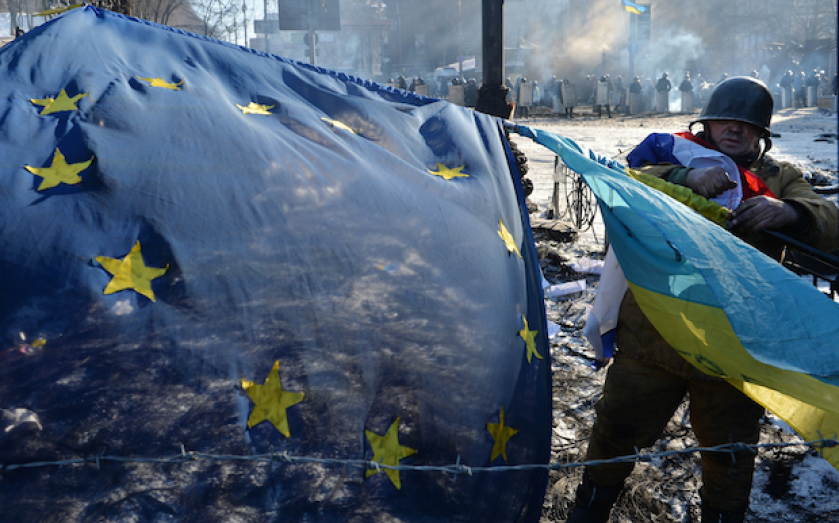Why does it take the threat of a Russian invasion to stop EU protectionism?

The European Union has proudly announced that it will be lifting €500m worth of tariffs on Ukrainian goods.
The EU's magnanimous move covers 94.7 per cent of current tariffs on imports of industrial goods and all tariffs on Ukraine’s agricultural produce.
Ukraine will not be required to provide reciprocity, but the EU will be obligated not to raise tariffs. Trade commissioner Karl De Gucht, said the measures were an "important component of the EU's package to help Ukraine during this difficult period."
While any move toward freer trade should be welcomed, the EU has added a massive caveat to its self-congratulatory statement. The measures entitle the EU to reintroduce tariffs on Ukrainian goods if they "flood the EU market in volumes that cause, or threaten to cause, serious difficulties to EU producers of the same goods."
The EU's logic for the policy appears to be that freer trade with Ukraine is desirable at a time of severe crisis. However, if EU consumers begin to prefer the quality or price of Ukrainian goods too much, then back the tariffs come.
What the EU seems to be unable to grasp is that free trade is good for producers as well as consumers. Freer trade would allow European producers to access cheaper inputs for their businesses, turn a healthier profit and offer more competitive prices to their customers.
The EU's statement, on the other hand, reads as if the lifting of EU tariffs is an act benevolent altruism to Ukrainian producers. However, this an immensely impoverished view of what free trade is.
Senior research fellow at the Institute of Economic Affairs (IEA) Kristian Niemietz, commented on the statement:
The tariff reduction is presented as if it was an act of charity, which it is clearly not: European consumers will be among the main beneficiaries; they would not buy Ukrainian products if this was otherwise.
The new policy also begs the question of why Ukraine should be singled out for preferential treatment. The EU has deemed Ukraine worthy of tariff removals but countries with significantly lower living standards, such as Uganda and Bangladesh, are not. The logic of free trade does not stop outside the European landmass.
The fewer the impediments to trade, the larger the size of the market; and the larger the market, the more sophisticated the resulting pattern of specialisation and division of labour. There is no logical upper limit to this. Ideally, the whole globe should be one single marketplace, and if we could go beyond by trading with extraterrestrials, we should do it.
To be fair to the EU, it has been in formal talks with Ukraine since 2008 to introduce the Deep and Comprehensive Free Trade Agreement. However, it took nothing less than international crisis caused by a belligerent Russia, to jolt the EU into allowing freer exchange between European and Ukrainian citizens.
Ukraine and the EU countries will soon begin to enjoy the benefits of freer trade, but at this point it's worth reminding ourselves of the draconian tariffs the EU maintains against much of the rest of the world.
Bananas from outside the EU are subject to a 16 per cent tax, 17 per cent for trainers, 9.7 per cent for cars, 12 per cent for shirts and much else besides. Citizens of the EU are effectively being prevented from helping the world's poorest people through buying products they like at prices they can afford.
If the EU ever felt inclined to listen to economists rather than interest groups, they could do worse than heeding the advice of Nobel prize winning economist, Paul Krugman:
If there were an Economist's Creed, it would surely contain the affirmations 'I understand the Principle of Comparative Advantage' and 'I advocate Free Trade'.